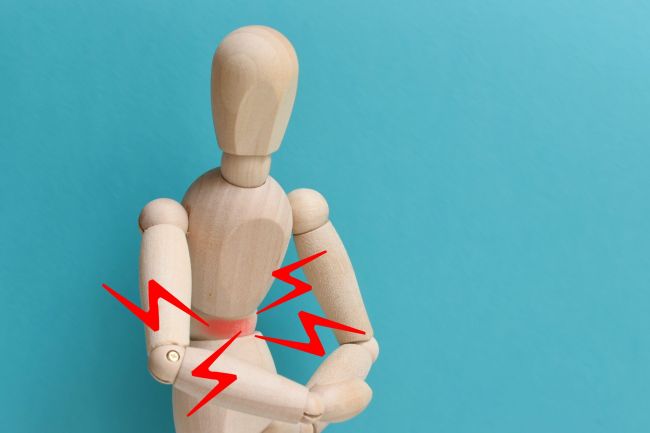
SIBO – A Common Cause of IBS
As I discussed in my last blog, suffering from IBS is not so much fun, nor is trying to work out what is actually causing it. As I made the case, there are many causes of IBS. Those annoying symptoms of bloating, gas and pain will not go away without some good detective work, treatment, and most importantly, implementation of lifestyle and behaviour change… yes, the tough stuff that we all find hard. As a follow up to my last blog, I will discuss one cause of IBS symptoms, called Small Intestinal Bacterial Overgrowth, or SIBO.
SIBO is a condition where normally benign or beneficial bacteria overgrow in the small intestine. As a result, people with SIBO experience:
- Gas and bloating
- Lower abdominal pain
- Nausea
- Headaches
- Fatigue
- Anxiety
- Depression
- Fat, carbohydrate, vitamin, & mineral malabsorption
The presentation differs between individuals, making SIBO a difficult diagnosis to make. Diagnosis is typically made based on symptomology, breath test (which we use mostly in Nordic Clinic), and/or duodenal aspirate (not a pleasant procedure where a tube is put down your throat into your small intestine and a sample taken).
When Defense Mechanisms Have Gone Wrong, a Nasty Cycle Can Result in SIBO
In a healthy individual, bacterial numbers in the upper small intestine are normally quite low (103 CFU/mL), the balance of bacteria is good and they are not causing any problem. It is important to point out at this stage that these organisms are normally found in the small intestine and are not pathogenic (disease causing). Imagine this like holding a party, where you have enough space for each guest and your party runs smoothly.
In SIBO, mechanisms that control the abundance of bacteria in the small intestine become breached – the doormen at your party just suddenly let way too many people in. The bacterial numbers can then exceed 105 CFU/mL (1), which can start to cause problems. In particular, the speed of motility is often delayed allowing the partly digested food you ate to sit for longer in that area, giving bacteria longer time to act on it (2). This creates conditions for more overgrowth and bacteria entering the space, which ends up in a nice little nasty cycle; Food you eat >food for bacteria > fermentation > gas > slowing of motility > more bacteria > yep, IBS type symptoms or a party out of control.
Furthermore, the continued overgrowth drives an inflammatory process that reinforces the condition. To use a classic analogy, let’s consider the bacteria as foreign invaders trying to get into your castle (if you own one, good for you). First, inflammation impairs mucosal integrity (your moat, a wide barrier protecting you from the bacteria), weakens barrier function (your castle walls also protecting you from the bacteria), decreases antimicrobial defense mechanisms (your archers sniping off bacteria that manage to get over the moat), and alters bile acid metabolism (hot tar being poured over the castle wall to clear away bacteria). Wow, that got pretty dramatic… sometimes we have to make these things more interesting.
Avoid Recurrent SIBO by Restoring Defences and Implement a Lifestyle Approach
Unfortunately, the treatment of SIBO has been fairly myopic, focusing on the use of antimicrobial therapies such as Rifaximin (antibiotic) to reduce bacterial numbers. While this often works to clear the overgrowth, failure to address underlying drivers of impaired function in the small intestine leads to recurrent bouts of SIBO. So yes, SIBO is one cause of IBS, but SIBO is also just a situation that occurs when defenses break down. Confused yet?
What Can Cause SIBO?
Common comorbidities that promote SIBO include1:
- Other functional GI disorders (IBS caused by other factors, IBD, dyspepsia)
- Impaired motility (could be due to certain medications or infection, like food poisoning)
- Small intestinal diverticula
- Abdominal surgery
- Type 1 & 2 diabetes (2.9x increased risk)3
- Coronary artery disease
- Hypothyroidism
- Pancreatitis
Other factors that can also promote SIBO are:
- Alcohol intake
- Sedentary lifestyle
- Being female (sorry ladies, you appear to be at higher risk)
- Chronic stress
- Circadian rhythm disruption and poor eating patterns
- High antibiotic use (ironically)
The type and number of bacteria that grow in any environment is driven by conditions that control their growth. In the small intestine, mucosal defense mechanisms help control the abundance of bacteria that reside there, but you need a good lifestyle to promote good defense.
SIBO, a common cause of IBS, bloating, gas and pain is not easy to resolve. The key to permanent elimination of SIBO is to restore mucosal defense and motility in the small intestine so bacteria cannot overgrow there. Easier said than done right?! Yes, you need to bolster your castle defences and function. Do not expect to throw in some probiotics to the party and expect it to be solved, it takes a multi-system and lifestyle approach.
.
At Nordic Clinic we have deep knowledge about IBS. Currently, we conduct a joint research study to investigate whether our functional medicine approach can help patients who suffer from chronic IBS. Based on the latest research and our long clinical experience of IBS, we have also developed an IBS program to help clients solve their IBS issues long term. If you want to learn more about our IBS program, please follow the link: IBS-program (Note! The information is in Swedish).
This article was originally published as a guest editor post at foodpharmacy.se
By: Graeme Jones, clinical physiologist and CEO at Nordic Clinic Stockholm.
Published: 06/09/2021
References
1. https://www.ncbi.nlm.nih.gov/pmc/articles/PMC6884350/

